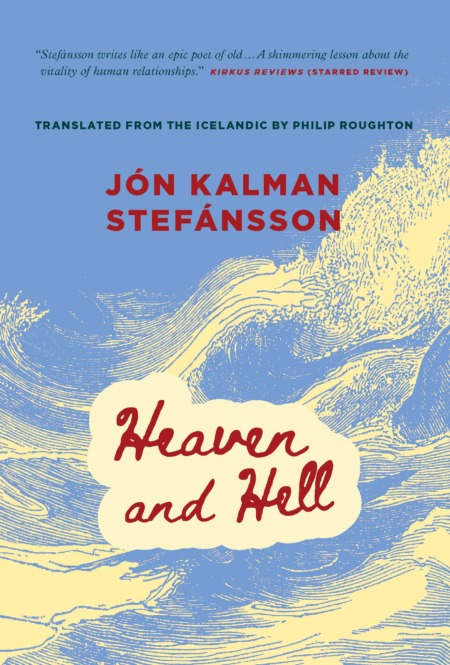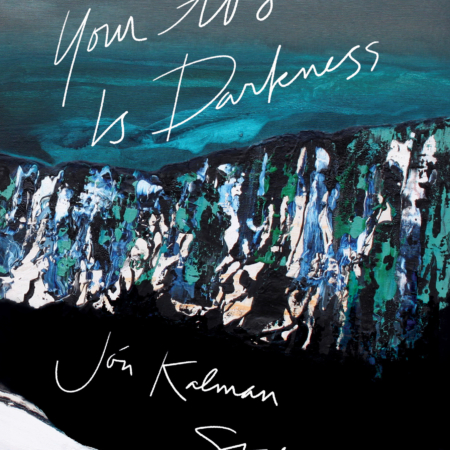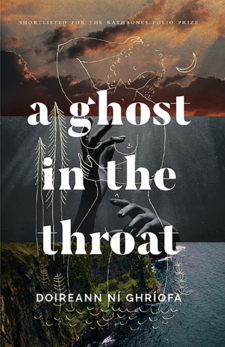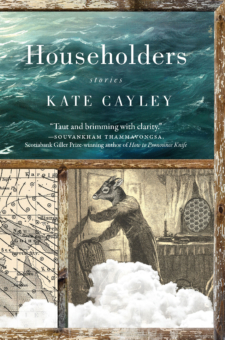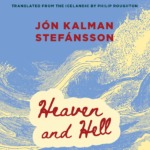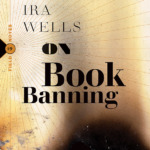Description
“Stefánsson shares the elemental grandeur of Cormac McCarthy.”—Eileen Battersby, TLS
In a remote fishing village, a boy and his best friend spend the lonely hours on shore reading and talking about poetry. When the friend, absorbed in a borrowed copy of Paradise Lost, forgets his oilskin one morning and the crew is unexpectedly caught at sea in a savage winter storm, tragedy strikes. Overwhelmed by grief—and his crewmates’ indifference to what has happened—the boy leaves the village, determined to return the book to its owner. The hardship and danger of the journey is of little consequence: he’s already resolved to join his friend in death. But when he reaches the town where he intends to end his days, he couldn’t have imagined the stories and lives he finds.
Navigating the depths of despair to celebrate the redemptive power of friendship, Heaven and Hell is an incandescent story of community, resilience, and love from one of Iceland’s most celebrated novelists.
Praise for Heaven and Hell
“Stefánsson’s narrative voice is the book’s most striking quality. It has something in common with the ‘slow prose’ of Jon Fosse: run-on sentences, rich in repeated motifs, that tap into different layers of thought. A typical line in Philip Roughton’s translation is flexible and supple, telescoping from close-up to wider view . . . Once the reader is settled into the rhythms of Stefánsson’s prose, we’ll go anywhere with him.”
—John Self, New York Times
“Heaven and Hell is an artfully crafted and arresting novel . . . Stefánsson excels at turning small places into the absolute centre of the world.”
—Literary Review of Canada
“A moving story of loss and courage told in prose as crisp and clear as the Icelandic landscape where it takes place . . . Stefánsson writes like an epic poet of old about the price the natural world exacts on humans, but he’s not without sympathy or an ability to find affirming qualities in difficult situations.”
—Kirkus Reviews (starred review)
“Some novels are so extraordinary, it’s hard to do them justice in a review. This is one of them, remarkable for its alluring articulation of the daunting arctic weather, and the hovering uncertainty that’s so bound up within it.”
—Kassie Rose, WOSU The Longest Chapter
“Stefánsson’s sentences come close to stream of consciousness, but so much more deeply, as he mines the emotions and perceptions of each character, conveying the confusions and anxieties of each with penetrating force.”
—Timothy Niedermann, Ottawa Review of Books
“Stefánsson plumbs the depths of a young man’s grief in this ruminative and piercing bildungsroman . . . Readers willing to go the distance will reap plenty of rewards.”
—Publishers Weekly
“The novel is lyrical in detailing hardscrabble life along polar sea shores, where everyone has lost someone, yet the fishing boats keep launching . . . A poetic soul sets out on a quest to honor his lost friend in the aching, trilogy-opening novel Heaven and Hell.”
—Foreword Reviews
“[A] brief, elegiac novel . . . Written in dense, poetic prose, with more emphasis on mood than plot, this novel circles through the many ways of surviving in a harsh place.”
—Booklist
“Despite its short 216 pages, Heaven and Hell and Stefánsson’s writing are imbued with weight, the weight of the sea, the weight of death, the weight of the moon, the weight of life’s consequences.”
—Under the Radar
“With exquisite language, allegory, and an intense sense of place, the comparison to Cormac McCarthy is entirely appropriate.”
—Mary Wahlmeier Bracciano, The Raven Bookstore (Lawrence, KS)
“I’m still feeling the chills from Stefánsson’s description of cod fishing in a rowboat on the stormy open seas. An excellent author.”
—Todd Miller, Arcadia Books (Spring Green, WI)
“The frigid winter weather couldn’t be a more befitting context to read this novel so full of icy landscapes and the harsh, bitter cold that can take root in any of our darkest moments. But what Stefánsson provides here is a perfect balance, perhaps implied by the title, between the seeming permanence of that coldness, and the creeping promise of hope for a thaw. An elemental, lyrical, beautiful book, that both finds those unexpected moments of profundity without denying the depths of despair in which they occasionally must be found.”
—Bryan Seitz, Literati Bookstore (Ann Arbor, MI)
Praise for Your Absence is Darkness
“Comparisons do not do justice to the complexity of Stefánsson’s book, nor the uniqueness of his prose, rendered here in a tumblingly beautiful translation by Philip Roughton.”
—Daniel Mason, New York Times
“Stefansson uses the drama and comedy of everyday lives to dive into a broad range of topics: philosophy, music, faith, and even the science of earthworms.”
—New York Times
“Like fellow Scandinavian authors Jon Fosse and Karl Ove Knausgaard, Mr. Stefánsson joins plainspoken depictions of daily life to intimations of mysticism, creating a spectral, haunted atmosphere . . . Questioning, vulnerable and openly sentimental, this is an absorbing commemoration of what the author calls the paradox that rules our existence, the vivifying joy and paralyzing sorrow of loving another person.”
—Sam Sacks, Wall Street Journal
“I couldn’t put it down.”
—Washington Post
“What makes this so irresistible is the narrator’s constant optimism as he probes profound questions from within the murk of his consciousness (‘Give me darkness, and then I’ll know where the light is’). Stefánsson is poised to make his mark on the world stage.”
—Publishers Weekly (starred review)

